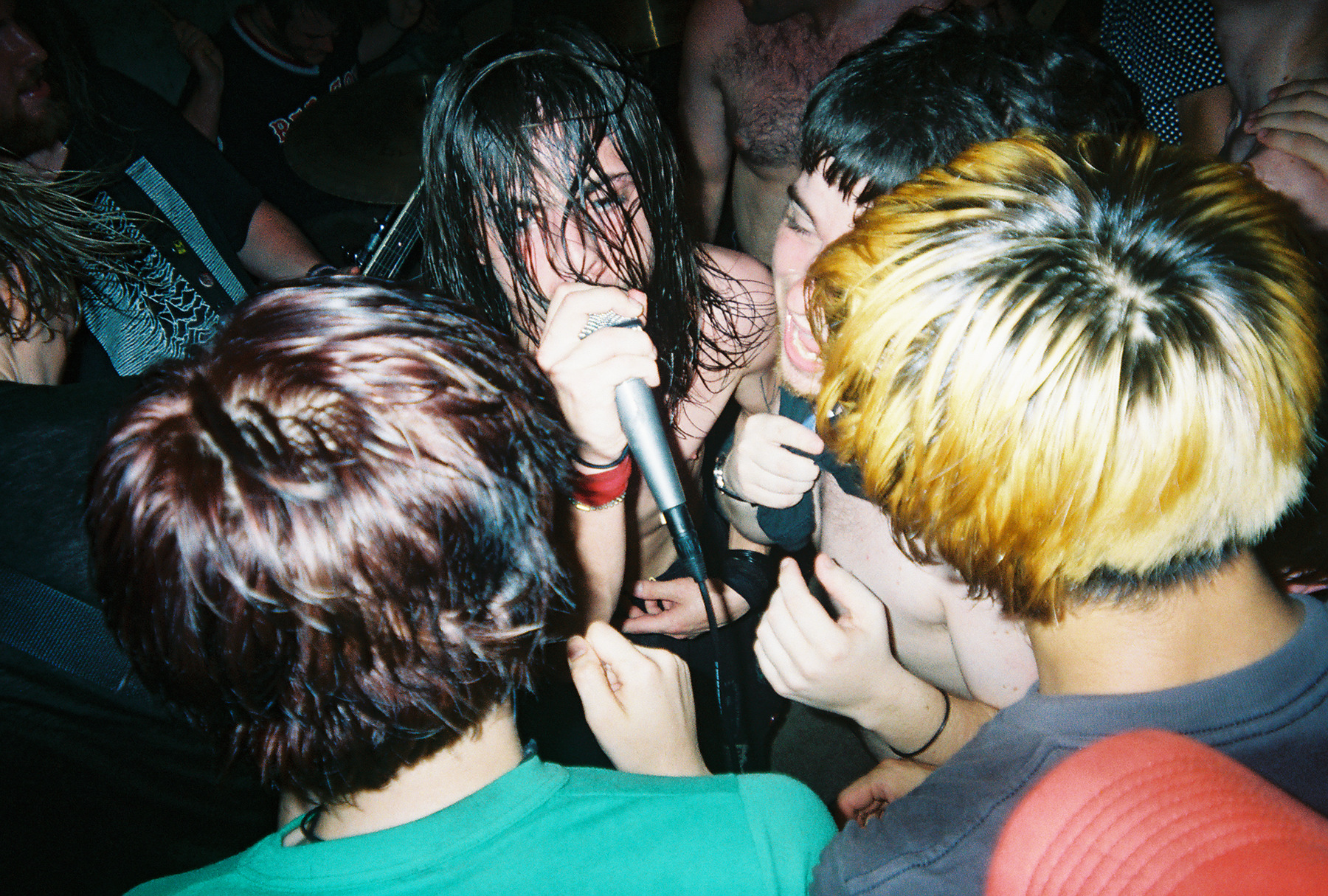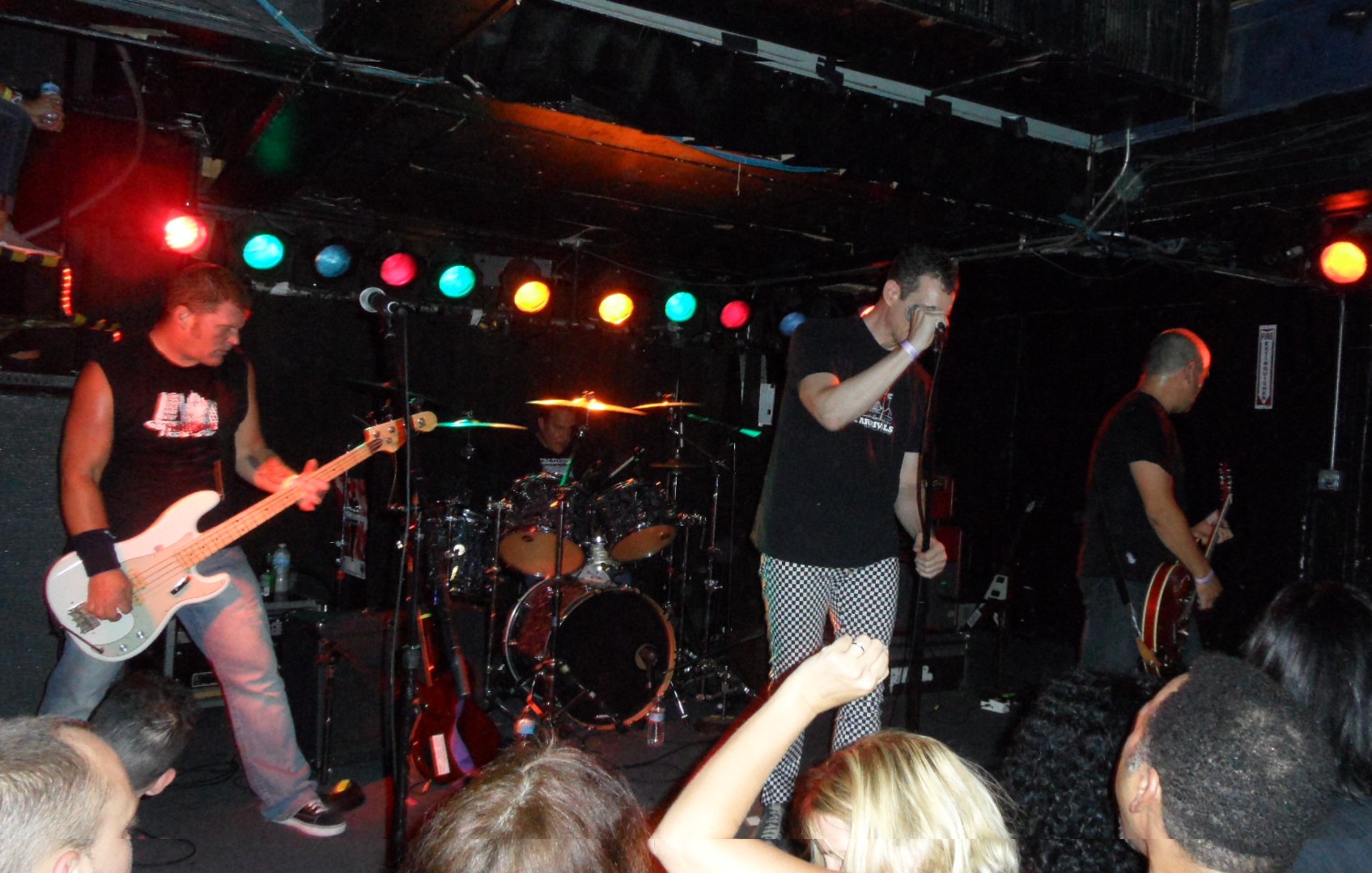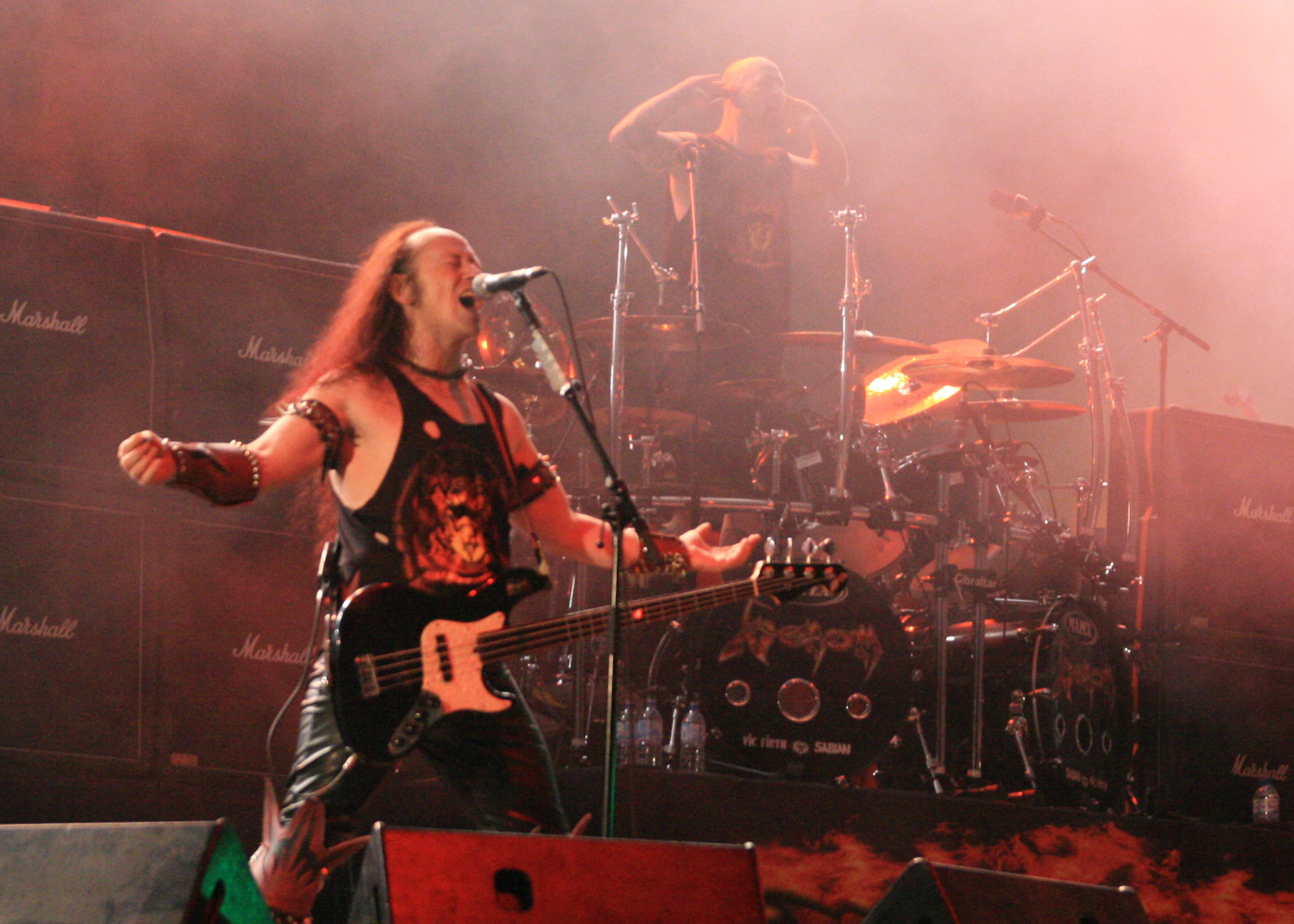|
Heaven In Her Arms
Heaven in Her Arms are a Japanese post-hardcore band from Tokyo. Named after a song from Converge's 2001 album ''Jane Doe'', they have released 3 studio albums, 2 EPs and 6 splits since 2005. In a positive review of the band's 2017 album ''White Halo'', '' Pitchfork'' writer Andy O'Connor described their style as an amalgamation of extreme metal, post-rock, and 1990s emo. He compared them to fellow Tokyo band Envy and named both bands a strong influence on their one-time tour-mates Deafheaven Deafheaven is an American post-metal band formed in 2010. Originally based in San Francisco, the group began as a two-piece with singer George Clarke and guitarist Kerry McCoy, who recorded and self-released a demo album together. Following i .... As of 2020, Heaven in Her Arms are signed to Daymare Recordings in Japan, Moment of Collapse Records in Europe, and Translation Loss in North America. Members Current members *Kent Aoki – guitar, vocals *Katsuta – guitar *Kentaro – ... [...More Info...] [...Related Items...] OR: [Wikipedia] [Google] [Baidu] |
Tokyo
Tokyo (; ja, 東京, , ), officially the Tokyo Metropolis ( ja, 東京都, label=none, ), is the capital and largest city of Japan. Formerly known as Edo, its metropolitan area () is the most populous in the world, with an estimated 37.468 million residents ; the city proper has a population of 13.99 million people. Located at the head of Tokyo Bay, the prefecture forms part of the Kantō region on the central coast of Honshu, Japan's largest island. Tokyo serves as Japan's economic center and is the seat of both the Japanese government and the Emperor of Japan. Originally a fishing village named Edo, the city became politically prominent in 1603, when it became the seat of the Tokugawa shogunate. By the mid-18th century, Edo was one of the most populous cities in the world with a population of over one million people. Following the Meiji Restoration of 1868, the imperial capital in Kyoto was moved to Edo, which was renamed "Tokyo" (). Tokyo was devastate ... [...More Info...] [...Related Items...] OR: [Wikipedia] [Google] [Baidu] |
Envy (band)
Envy is a Japanese screamo band formed in Tokyo, in 1992. They are signed to Rock Action Records in Europe and Temporary Residence Limited in North America, though originally they worked with Level Plane Records. Initially influential in the post-hardcore and screamo scenes, Envy soon began to employ elements of post-rock in their work as well. They have released 7 studio albums to date (with the most recent being The Fallen Crimson), as well as several EPs and splits, most notably with Jesu and American post-hardcore band Thursday. Original member and vocalist Tetsuya Fukagawa left Envy in 2016. On February 6, 2018, Envy announced a new lineup consisting of Tsuyoshi Yoshitake, Yoshimitsu Taki, and Hiroki Watanabe. A Japanese press release added that two members had left the band, and founding guitarist and drummer Masahiro Tobita and Dairoku Seki were no longer listed as members on the band's Facebook page or website. On April 1, 2018, Tetsuya Fukagawa surprise-rejoined ... [...More Info...] [...Related Items...] OR: [Wikipedia] [Google] [Baidu] |
Screamo Musical Groups
Screamo (also referred to as skramz) is an aggressive subgenre of emo that emerged in the early 1990s and emphasizes "willfully experimental dissonance and dynamics".Jason Heller, "Feast of Reason". ''Denver Westword'', June 20, 2002Access date: June 15, 2008 San Diego-based bands Heroin and Antioch Arrow pioneered the genre in the early 1990s, and it was developed in the late 1990s mainly by bands from the East Coast of the United States such as Orchid, Funeral Diner, Saetia, Pg. 99, and I Hate Myself. Screamo is strongly influenced by hardcore punk and characterized by the use of screamed vocals. Lyrical themes usually include emotional pain, death, romance, and human rights. The term "screamo" has frequently been mistaken as referring to any music with screaming vocals. Screamo experienced popularity in the 2000s with the success of bands like Alesana, Thursday, Underoath, Silverstein, Hawthorne Heights, Alexisonfire, and Senses Fail. The genre's popularity declined in the 2 ... [...More Info...] [...Related Items...] OR: [Wikipedia] [Google] [Baidu] |
Japanese Post-rock Groups
Japanese may refer to: * Something from or related to Japan, an island country in East Asia * Japanese language, spoken mainly in Japan * Japanese people, the ethnic group that identifies with Japan through ancestry or culture ** Japanese diaspora, Japanese emigrants and their descendants around the world * Japanese citizens, nationals of Japan under Japanese nationality law ** Foreign-born Japanese, naturalized citizens of Japan * Japanese writing system, consisting of kanji and kana * Japanese cuisine, the food and food culture of Japan See also * List of Japanese people * * Japonica (other) * Japonicum * Japonicus * Japanese studies Japanese studies (Japanese: ) or Japan studies (sometimes Japanology in Europe), is a sub-field of area studies or East Asian studies involved in social sciences and humanities research on Japan. It incorporates fields such as the study of Japanese ... {{disambiguation Language and nationality disambiguation pages ... [...More Info...] [...Related Items...] OR: [Wikipedia] [Google] [Baidu] |
Post-metal Musical Groups
Post-metal is a music genre rooted in heavy metal music, heavy metal but exploring approaches beyond metal conventions. It emerged in the 1990s with bands such as Neurosis (band), Neurosis and Godflesh, who transformed metal texture (music), texture through experimental music, experimental composition. In a way similar to the predecessor genres post-rock and post-hardcore, post-metal offsets the darkness and intensity of extreme metal with an emphasis on atmosphere, emotion, and even "revelation", developing an expansive but introspective sound variously imbued with elements of ambient music, ambient, noise music, noise, psychedelic music, psychedelic, progressive music, progressive, and classical music. Songs are typically long, with loose and layered structures that discard the verse–chorus form in favor of crescendos and repeating Theme (music), themes. The sound centres on guitars (subjected to various Effects unit, effects) and drums, while any vocals are usually screaming ( ... [...More Info...] [...Related Items...] OR: [Wikipedia] [Google] [Baidu] |
Japanese Hardcore Punk Groups
Japanese may refer to: * Something from or related to Japan, an island country in East Asia * Japanese language, spoken mainly in Japan * Japanese people, the ethnic group that identifies with Japan through ancestry or culture ** Japanese diaspora, Japanese emigrants and their descendants around the world * Japanese citizens, nationals of Japan under Japanese nationality law ** Foreign-born Japanese, naturalized citizens of Japan * Japanese writing system, consisting of kanji and kana * Japanese cuisine, the food and food culture of Japan See also * List of Japanese people * * Japonica (other) * Japonicum * Japonicus * Japanese studies Japanese studies (Japanese: ) or Japan studies (sometimes Japanology in Europe), is a sub-field of area studies or East Asian studies involved in social sciences and humanities research on Japan. It incorporates fields such as the study of Japanese ... {{disambiguation Language and nationality disambiguation pages ... [...More Info...] [...Related Items...] OR: [Wikipedia] [Google] [Baidu] |
Post-hardcore Groups
Post-hardcore is a punk rock music genre that maintains the aggression and intensity of hardcore punk but emphasizes a greater degree of creative expression. It was initially inspired by post-punk and noise rock. Like post-punk, the term has been applied to a broad constellation of groups. Post-hardcore began in the 1980s with bands like Hüsker Dü and Minutemen. The genre expanded in the 1980s and 1990s with releases by bands from cities that had established hardcore scenes, such as Fugazi from Washington, D.C. as well as groups such as Big Black and Jawbox that stuck closer to post-hardcore's noise rock roots. In the early- and mid-2000s, achieved mainstream success with the popularity of bands like My Chemical Romance, Dance Gavin Dance, AFI, Underoath, Hawthorne Heights, Silverstein, The Used, At the Drive-In, Saosin, Alexisonfire, and Senses Fail. In the 2010s, bands like Sleeping with Sirens and Pierce the Veil achieved mainstream success. Meanwhile, bands like Title F ... [...More Info...] [...Related Items...] OR: [Wikipedia] [Google] [Baidu] |
Musical Groups From Tokyo , the ability to perceive music or to create music
*
{{Music disambiguation ...
Musical is the adjective of music. Musical may also refer to: * Musical theatre, a performance art that combines songs, spoken dialogue, acting and dance * Musical film and television, a genre of film and television that incorporates into the narrative songs sung by the characters * MusicAL, an Albanian television channel * Musical isomorphism, the canonical isomorphism between the tangent and cotangent bundles See also * Lists of musicals * Music (other) * Musica (other) * Musicality Musicality (''music -al -ity'') is "sensitivity to, knowledge of, or talent for music" or "the quality or state of being musical", and is used to refer to specific if vaguely defined qualities in pieces and/or genres of music, such as melodiousnes ... [...More Info...] [...Related Items...] OR: [Wikipedia] [Google] [Baidu] |
Deafheaven
Deafheaven is an American post-metal band formed in 2010. Originally based in San Francisco, the group began as a two-piece with singer George Clarke and guitarist Kerry McCoy, who recorded and self-released a demo album together. Following its release, Deafheaven recruited three new members and began to tour. Before the end of 2010, the band signed to Deathwish Inc. and later released their debut album ''Roads to Judah,'' in April 2011. They established a unique style blending black metal, shoegazing, and post-rock, among other influences, later called "blackgaze" by reviewers. Deafheaven's second album, ''Sunbather'', was released in 2013 to wide critical acclaim, becoming one of the best reviewed albums of the year in the US. In 2015 the band followed up with '' New Bermuda'' and in 2018 with '' Ordinary Corrupt Human Love''. Their 2021 fifth album, '' Infinite Granite'', drastically reduced the presence of screamed vocals. History Formation and demo (2010) Deafheaven ... [...More Info...] [...Related Items...] OR: [Wikipedia] [Google] [Baidu] |
Post-rock
Post-rock is a form of experimental rock characterized by a focus on exploring textures and timbre over traditional rock song structures, chords, or riffs. Post-rock artists are often instrumental, typically combining rock instrumentation with electronics. The genre emerged within the indie and underground music scene of the 1980s and early 1990s. However, due to its abandonment of rock conventions, it often bears little resemblance musically to contemporary indie rock, borrowing instead from diverse sources including ambient, electronica, jazz, krautrock, dub, and minimalist classical. Artists such as Talk Talk and Slint have been credited with producing foundational works in the style in the early 1990s. The term post-rock itself was notably employed by journalist Simon Reynolds in a review of the 1994 Bark Psychosis album '' Hex''. It later solidified into a recognizable trend with the release of Tortoise's 1996 album ''Millions Now Living Will Never Die''. The term has ... [...More Info...] [...Related Items...] OR: [Wikipedia] [Google] [Baidu] |
Post-hardcore
Post-hardcore is a punk rock music genre that maintains the aggression and intensity of hardcore punk but emphasizes a greater degree of creative expression. It was initially inspired by post-punk and noise rock. Like post-punk, the term has been applied to a broad constellation of groups. Post-hardcore began in the 1980s with bands like Hüsker Dü and Minutemen (band), Minutemen. The genre expanded in the 1980s and 1990s with releases by bands from cities that had established hardcore scenes, such as Fugazi from Washington, D.C. as well as groups such as Big Black and Jawbox that stuck closer to post-hardcore's noise rock roots. In the early- and mid-2000s, achieved mainstream success with the popularity of bands like My Chemical Romance, Dance Gavin Dance, AFI (band), AFI, Underoath, Hawthorne Heights, Silverstein (band), Silverstein, The Used, At the Drive-In, Saosin, Alexisonfire, and Senses Fail. In the 2010s, bands like Sleeping with Sirens and Pierce the Veil achieved main ... [...More Info...] [...Related Items...] OR: [Wikipedia] [Google] [Baidu] |
Extreme Metal
Extreme metal is a loosely defined umbrella term for a number of related heavy metal music subgenres that have developed since the early 1980s. It has been defined as a "cluster of metal subgenres characterized by sonic, verbal, and visual transgression". The term usually refers to a more abrasive, harsher, underground, non-commercialized style associated with the speed metal, thrash metal, black metal, death metal, and doom metal genres.K. Kahn-Harris, ''Extreme Metal: Music and Culture on the Edge'' (Berg Publishers, 2007), , p. 31. Hardcore punk has been considered an integral part of the development of extreme metal, in the case of song structure and speed, in every case other than doom metal. Definitions Extreme metal acts set themselves apart from traditional heavy metal acts, such as Iron Maiden, Judas Priest and Motörhead, by incorporating more abrasive musical characteristics such as higher tempos, increased aggression and a harsher extremity. In the majority of ... [...More Info...] [...Related Items...] OR: [Wikipedia] [Google] [Baidu] |






